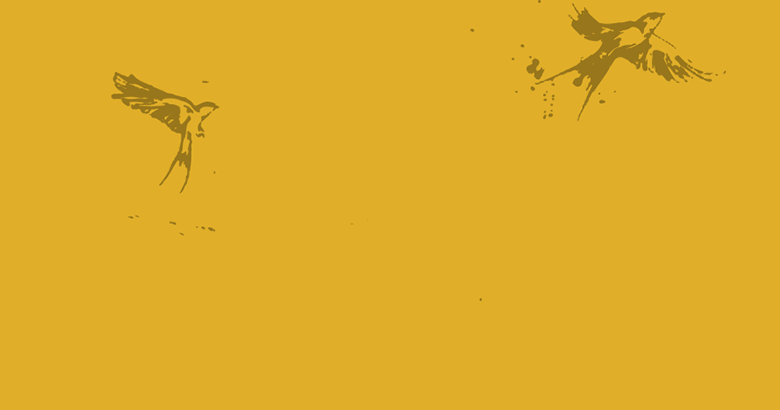In a cozy two-story office in the center of the Osh city life is in full swing. The Osh branch of Kloop Public Association is based here, and as part of three-month season schools students learn the basics of journalism. Participants from remote regions live here in the hostel.
An important part of these events is the learning format — a practice when a student immediately learns to work with sources, tries to interview and prepares materials. The atmosphere in the school is working but the students are relaxed and free in their creative process.
We arrived at school at noon and had a delicious lunch. The Project Coordinator in Osh branch Kloop, Saadat Tologonova, was setting the table and dishing out pilaf to the young people. Traditional Osh pilaf, with its aroma and unique taste, is a separate topic, and it should be noted that the conversation with this dish always proves to be warm and confidential. This is exactly what can be said about our conversation with the students of the Kloop School of Journalism. They talked about their impressions of the practice, shared their plans and spoke highly of their young mentors.
Elvira Sultanmurat kyzy, a mentor of the School, came to Osh from Bishkek: “We, coaches, are not much older than our students and this is a big advantage. It is easier for young people to communicate with their peers, they do not feel embarrassed in our presence and they feel free to ask any questions. The students were selected on the basis of a questionnaire and an essay.
We have a duty system, each student is to release material on his appointed day: news, photos and videos. Thus, we teach them to discipline which also works in the editorial offices of adults’ media. Each material has its own point value: a student earns points by preparing a photo report, news or video”.
The decision on whether the news will go to the site’s news feed is made jointly with the Bishkek editorial staff; the topics are coordinated with the editor-in-chief. In the Osh branch the editorial staff has its own staff meeting every Friday.
“We have no chiefs; we appreciate everybody and believe that each person is unique. In the editorial office everyone has an opinion of his own, we decide everything together, we go on excursions together, the guys turn to us not only on professional but personal issues as well”, says Elvira.
Mairambek Taalaibek uulu, a student at the Spring Kloop School of Journalism, said that he didn’t expect the editor to hand him a phone number and ask for information on the news related to the medical students dissatisfied with extension of medical residency. Mairambek made his first material in the form of a photo essay about the Orthodox Church in Osh city. He had to select 100 out of 500 photos taken, from among which only a few of them were selected for the site. “After thorough preparation I understood how difficult it was to prepare such materials. But I believed in myself and I understood that I was able to make photo reports. I try to convey my impressions to the reader”, Mairambek says.
With the start of training the students immediately plunge into the journalistic life and prepare news on the ground. An important feature of the School is not only an orientation towards practical journalism but the fact that every student here has the opportunity to try different presentation formats. The trainers believe in their students and enable them tackle the most serious topics.
Aigerim Yrysbek kyzy prepared one of the most explosive feature materials about the landfill near Osh city: “At the beginning of school I never imagined that the mayor’s office staff could take me seriously and that I would be able to prepare an article on such a complicated topic. But in the process of writing this article I not only gained experience but learned a lot about the lives of ordinary people as well”. The mentors of the School note Aigerim’s abilities: “She takes only the first year of journalism but in conversation she admitted that she picked up a great store of knowledge at our School. Aigerim is an excellent interviewer, she is able to clearly formulate questions and get comprehensive answers to them. ”
There is no customary teacher-student hierarchy, everyone is equal and has the right to express his/her point of view. Inner freedom at work with young people is very important.
Gulzhan Eshbayeva, editor of Kloop and mentor of the School, notes that when setting tasks the safety of students is primarily taken into account because sometimes they have to cover such complicated social problems as violence, poverty and crime. Gulzhan shares her impressions of Gulnur Zairova’s work whom she remembered for her creativity and communication skills: “From the first days Gulnur worked quite professionally with various press services and became an example for the other students. I hope that the knowledge gained at the Kloop School of Journalism will serve as an impetus for her professional future”.
Among the first topics that the editors tell students about is the responsibility of journalists to society. When choosing topics, journalists should be guided primarily by public interest and they should not forget about accuracy and balance.
“Such school is essential for young people. During three months you can gain deep knowledge and expand your outlook”, Mairambek says.
It is important that all pieces of news are prepared here in Kyrgyz. According to the latest data from the company M-Vector (A study of media preferences of the audience, 2017) almost 70% of the population of Kyrgyzstan today prefer to receive information in Kyrgyz language.
Soros Foundation-Kyrgyzstan supports the activities of the Kloop Osh branch in order to increase the access to high-quality content for Kyrgyz-speaking audience. Supporting schools of journalism for young people contributes to the development of critical thinking of the younger generation and the education of aspiring journalists.



